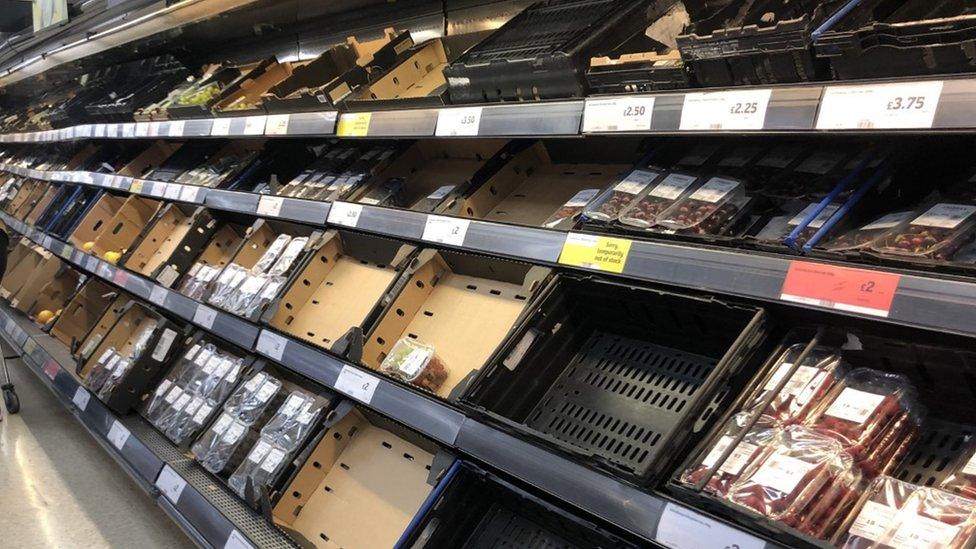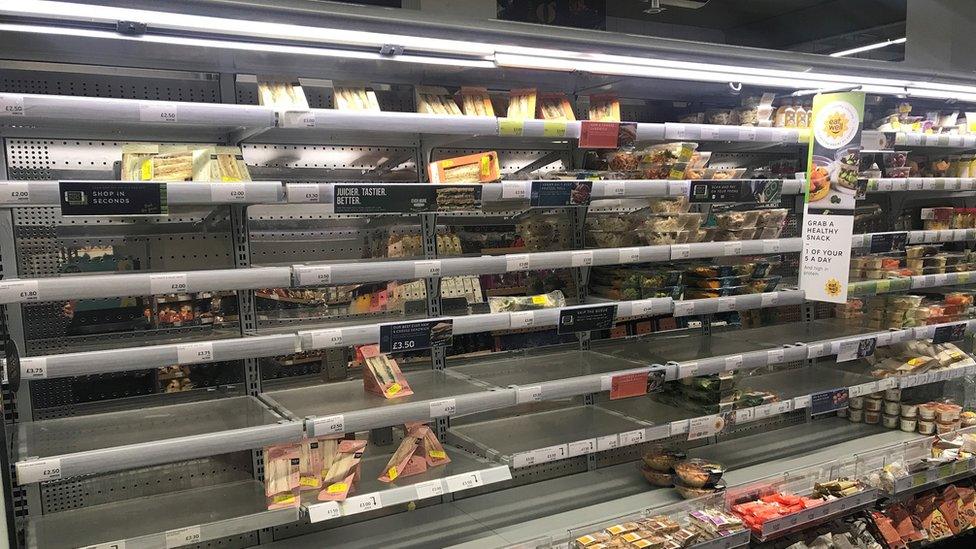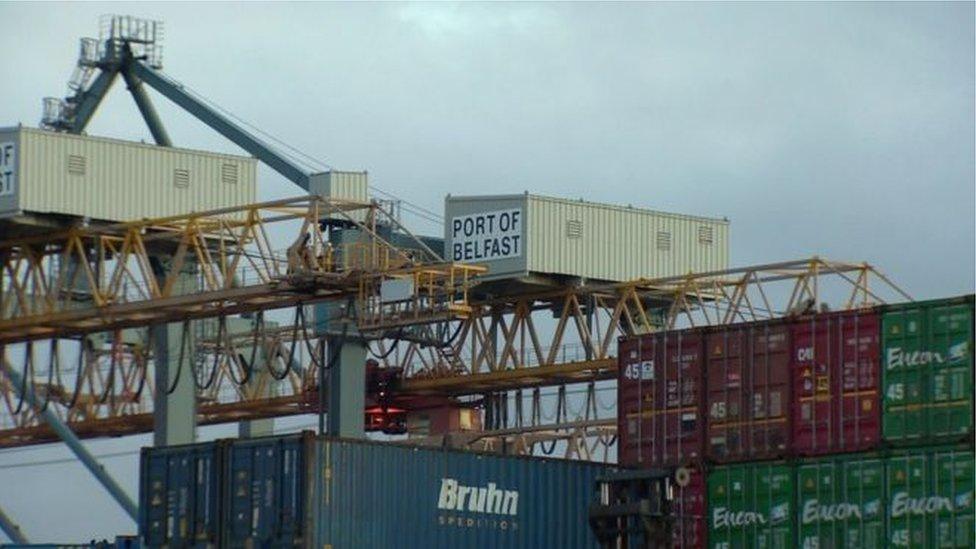Brexit: Supermarkets call for action on NI food supplies
- Published
- comments

Many items were missing from the fresh food aisle at this Sainsbury's in Belfast on Monday
The UK's major supermarkets have warned the government that an "urgent intervention" is needed to prevent further disruption to NI food supplies.
There have been shortages of some products in NI as retailers grapple with post-Brexit arrangements for importing food products from GB.
The chief executives of Tesco, Sainsbury's, Asda, Iceland, Co-Op and Marks & Spencer have written to Cabinet Office Minister Michael Gove.
They said that if further new certification requirements are introduced in April the system will become "unworkable".
The government said a new dedicated team has already been set up and will be working with supermarkets, the food industry and the Northern Ireland Executive to develop ways to streamline the movement of goods.
Since 31 December Northern Ireland has remained a part of the EU's single market for goods while the rest of the UK has left.
That means food products entering NI from GB need to be professionally certified and are subject to new checks and controls at ports.
A three month "grace period" means that supermarkets currently don't need to comply with all the EU's usual certification requirements.
However, the movement of food products from GB to NI has faced disruption.
M&S has temporarily reduced its range of food products and Sainsbury's has been sourcing Spar-branded products from a NI wholesaler.
In their letter, the supermarket chief executives said that if the grace period expires without a long term solution the problems will get worse.

Marks & Spencer has temporarily reduced its range of food products
They said: "We accept clear progress needs to be made by 1/4/21 and are happy to discuss our issues and solutions directly with EU officials.
"However, until then we need an assurance that the current process based on a trusted trader scheme... doesn't change until a workable replacement is agreed."
A government spokesman said: "The grace period for supermarkets and their suppliers is working well, goods continue to flow effectively between Great Britain and Northern Ireland and we are working intensively with industry as new requirements come in."
Related topics
- Published10 January 2021

- Published3 January 2021
